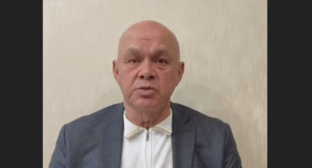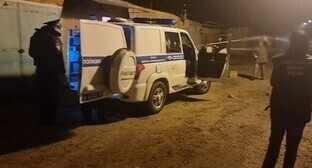13 May 2011, 22:00
HRC "Memorial": power agents question author of the book on war crimes in Chechnya
The Centre for Combating Extremism is now checking the fact of dissemination of the book on war crimes in Chechnya, written by the Russian-Chechen Friendship Society (RCFS). The Human Rights Centre (HRC) "Memorial" considers it an attempt to suppress the freedom of speech and prevent human rights activities with the help of the anti-extremist legislation.
The full title of the book in question is "International Tribunal for Chechnya. Legal prospects of bringing persons, suspected of committing war crimes and crimes against humanity during the armed conflict in the Chechen Republic to individual criminal liability". Its presentation was held in July 2009 in the Independent Press Centre in Moscow.
Within the check related to the book, this April, the Nizhny Novgorod Centre "E" summoned Stanislav Dmitrievskiy, one of the authors of the book and a well-known rights defender, and Igor Kalyapin, head of the Committee Against Torture, from whom several copies of the book were confiscated in 2009.
As it turned out, the law enforcers had some sort of opinion of some specialist, who came to the conclusion that the book allegedly contains extremist statements; this is stated in the message of the HRC "Memorial", received by the "Caucasian Knot".
The HRC notes that within the same case the Moscow "E" Centre summoned Karinna Moskalenko, the reviewer of the book and Director of the Centre for International Defence, and Natalia Yakovleva, Director of the Independent Press Centre, which hosted the presentation of the book.
Let us note here that after the book was presented in Moscow in July 2009, Igor Kalyapin, head of the Committee Against Torture, brought in his car several copies of the book from Moscow to Nizhny Novgorod; however, the traffic police inspectors stopped and screened the car at the entrance to the city, and confiscated 12 copies of the two-volume book.
Then, operative agents of the "E" Centre said that they had had information about possible presence of extremist appeals in the text of the book. In order to return the confiscated property, Igor Kalyapin turned, according to his residence, to the Sovietskiy District Court, which passed a decision on September 29, 2009, to recognize the actions of power agents illegal and ruled to return the confiscated property back to Kalyapin, the "Novaya Gazeta" wrote.
The HRC "Memorial" emphasizes that the book presents a high-quality legal, human rights and historical analysis of the events of the two Chechen Wars, and of all the circumstances that led to them; it discusses the chances and ways of bringing the perpetrators from both parties of the conflict to justice with the use of international mechanisms; the HRC states that the attempt to declare the book to be an extremist one is a clear violation of the Constitution of the Russian Federation, the European Convention on Human Rights and Fundamental Freedoms and the International Covenant on Civil and Political Rights.
The book relies on an extensive database, documenting violations of human rights and international humanitarian law in Chechnya, and in large part - on the materials gathered by the staff of the HRC "Memorial". These materials, both individually and as a bulk of publications, had been widely disseminated and, in particular, handed over to investigatory authorities.




